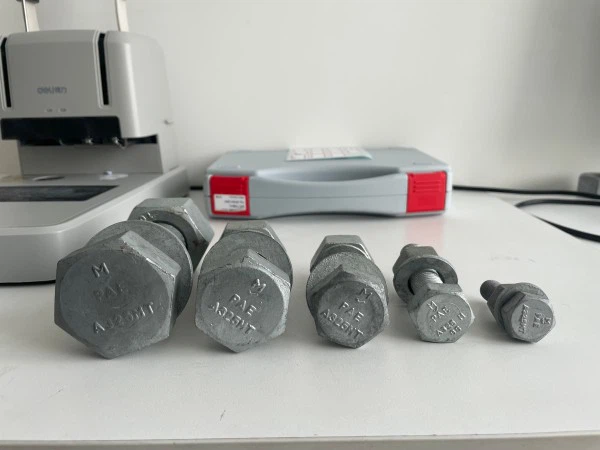1. Different definitions
The meaning of bolt performance grade is an international standard. Bolts of the same performance grade have the same performance regardless of their materials and origins. Only the performance grade can be selected for design.
According to the regulations, bolts whose performance level is above 8.8 are called high-strength bolts. Bolts of grade 8.8 and above are made of low-carbon alloy steel or medium-carbon steel and have been heat-treated (quenched and tempered). They are generally called high-strength bolts, and the rest are collectively called ordinary bolts. Conventionally, heat treatment is performed after rubbing silk.
2. the intensity is different
High-strength bolts can withstand a greater load than ordinary bolts of the same specification.
3. Different raw materials
High-strength bolts are made of high-strength materials. The screw, nut and washer of high-strength bolts are all made of high-strength steel, such as No. 45 steel, 40 boron steel, 20 manganese titanium boron steel, 35CrMoA and so on. Ordinary bolts are usually made of Q235 (equivalent to A3 in the past) steel.
4. Different strength levels
The performance grade of bolts used for steel structure connection consists of two parts of data, and the grades are classified into more than 10 grades such as 3.6, 4.6, 4.8, 5.6, 5.8, 6.8, 8.8, 9.8, 10.9, 12.9, 14.9, 15.8, 15.9, 16.8, etc.
General bolts use "X.Y" to represent the strength, which respectively represent the nominal tensile strength value and yield strength ratio of the bolt material, X*100=the tensile strength of the bolt, X*100*(Y/10)=the bolt yield strength.
For example: bolts with performance grade 4.6 mean: the nominal tensile strength of the bolt material is 400MPa; the yield strength ratio of the bolt material is 0.6; the nominal yield strength of the bolt material is 400*0.6=240MPa.
5. Different force characteristics
High-strength bolts apply pretension and transmit external forces by friction. Ordinary bolt connection transmits shear force by the shear resistance of the bolt rod and the pressure bearing of the hole wall. When the nut is tightened, the pre-tension force is very small, and its influence can be ignored.
In addition to its high material strength, high-strength bolts also apply a large pre-tension force to the bolts to generate extrusion force between the connecting components, so that there is a large friction force perpendicular to the direction of the screw, and the pre-tension force and anti-slip coefficient Both steel and steel types directly affect the bearing capacity of high-strength bolts.





